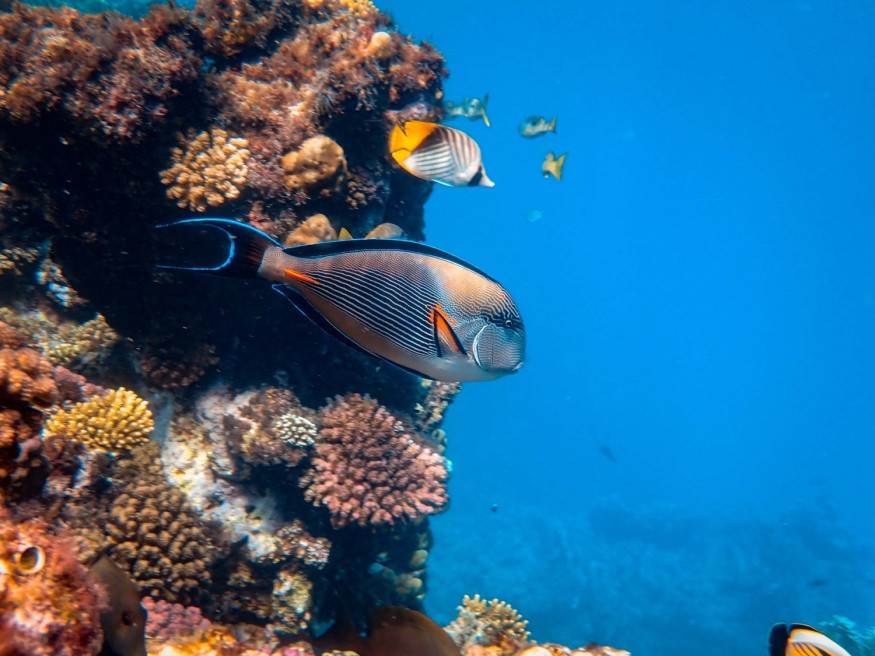
Experts expressed concerns for the health of marine life on the Great Barrier Reef as a marine heatwave struck Queensland.
The Guardian reported that more than 2,000 kilometers of Queensland's coast were affected by the heatwave, leaving about 1 million square kilometers northeast of Australia at the mercy of heatwave conditions.
Data from the US National Atmospheric and Oceanic Administration (NOAA) revealed that the heatwave started at the end of June.
Dr. Grant Smith, an oceanographer and researcher at the Bureau of Meteorology, said temperatures were more than one degree Celsius above average for this time of year over a large portion of the Great Barrier Reef and the Coral Sea.
Temperatures over the reef in June were the 12th hottest on record.
Over the next few months, sea surface temperatures over the reef were expected to continue above average until the end of the current forecast period in December.
Experts have warned that if the reef's waters are already warmer than usual as summer approaches, less additional heating may be required to stress corals sufficiently for them to bleach, a potentially fatal stress reaction for the animals.
Prof. Jodie Rummer, a marine biologist and fish expert at James Cook University, said this phenomenon increased the metabolic rate of fish.
"So if everything needs more food, that puts a strain on the whole ecosystem," she said.
Marine heatwave experience worldwide
A marine heatwave occurs when temperatures in a given area reach the warmest 10% ever recorded for that time of year and remain there for at least five days.
Extreme maritime temperatures have been observed in Ireland, the United Kingdom, and the Baltic Sea, as well as places near New Zealand and Australia. Experts are also projecting a possible heatwave in the Labrador Sea south of Greenland.
"We are having these huge marine heatwaves in different areas of the ocean unexpectedly evolve very early in the year, very strong and over large areas," says Karina von Schuckmann, an oceanographer at Mercator Ocean.
In the recent marine heatwave bulletin posted by the group, a heatwave in the western Mediterranean appeared to be intensifying, particularly in the Strait of Gibraltar.
Dr. Alex Sen Gupta, an associate professor at the UNSW Climate Change Research Centre and marine heatwave expert, stressed that we are experiencing more maritime heatwaves globally than we have ever seen before.
"It's exceptional at the moment. It's definitely warm in the [water] north-east [of Australia]. There's bound to be impacts to animals and plants because of these warmer temperatures," she added.
According to the Intergovernmental Panel on Climate Change (IPCC) expert report for 2021, marine heatwaves increased in frequency between 1982 and 2016, and have been more intense and longer since the 1980s.
Marine heatwave in winter
The impact of marine heatwaves in the winter is less intense than in the summer, when they can actually cause damage or even kill corals.
However, some experts argue that there is still some uncertainty regarding the effects of the heatwave during the winter.
Dr. Jessica Stella, assistant director of reef health at GBRMPA, said while the risk of coral bleaching during this time is lower, there is concern regarding a possible outbreak of coral diseases.
"Usually a warmer temperature would mean an increase in disease in corals. In winter disease pathogens usually become more dormant. If [temperatures] don't cool enough, the pathogens can remain virulent and we could see an uptick in coral disease," she added.
Related Video:
© 2025 NatureWorldNews.com All rights reserved. Do not reproduce without permission.





